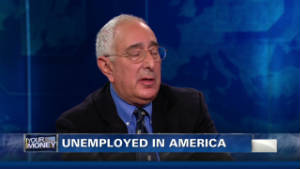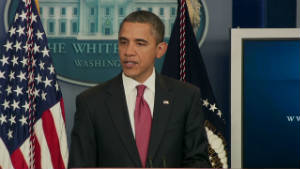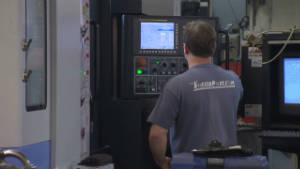The payroll-tax-cut debate is not really about the payroll tax, which is a very weak-kneed economic stimulant and a lackluster job creator because of its temporary nature. Without permanent incentives at lower tax rates, these rebates don't do anything for growth and jobs.
Instead, the key to understanding the payroll-tax debate is to grasp President Barack Obama's leftist vision of taxing successful earners (the millionaire surtax) and his obsession with clean energy at the expense of fossil fuels. These are ideological positions. They support the Obama vision of class warfare and his attachment to radical environmentalism.
And the key to understanding this state of affairs is the disposition of the TransCanada Keystone XL pipeline, which Republicans cleverly threw into the payroll-tax debate as the only real job creator.
By siding with the radical greenies and standing against the Keystone pipeline, Obama has turned his back on the most traditional voting bloc in the Democratic Party: blue-collar, hardhat workers.
Manufacturing workers. Construction workers. Truckers. Pipefitters. Plumbers. The Keystone opposition coming out of the White House is completely alienating all these people, the folks who work with their hands. And it's these workers who have been decimated in the recession far more than any other group in the economy.
David Barnett, the head of the United Association of Plumbers and Pipefitters, told me on CNBC that unemployment is currently running at 20 percent to 25 percent in this blue-collar sector. He has repeatedly lobbied the White House to allow the Keystone pipeline to go through, and he notes high environmental standards in the work his men do. And yet even now, three years after the initial Keystone reviews began, the issue is still not resolved.
How can you have a jobs bill without putting blue-collar workers back to work? Answer: stubborn ideological insistence.
The Teamsters support the Keystone. So does the AFL-CIO. So do the machinists. And along with the plumbers and pipefitters, so does the Laborers' International Union of North America.
And we're not just talking about the 20,000 jobs that would accrue directly from the pipeline, but the secondary and tertiary jobs from a long supply chain that total well over 100,000.
As of this writing, the White House may dump the millionaire surtax. But that's not much of a concession, since it never would have passed anyway. Republicans are adamant. It's a nonstarter in the House, and probably the Senate, too. Meanwhile, Republican Senate leader Mitch McConnell told me the Keystone pipeline is the key to the payroll-tax-cut deal.
Both practically and symbolically, Obama's obsessive stance against the pipeline rips a huge split in the Democratic Party, and in the country as a whole. His manic support of clean energy -- just think Solyndra -- has blocked out any rational evaluation of the ongoing importance of oil and natural gas -- including the oil-and-gas-shale fracking revolution that has become a huge jobs creator in North Dakota, Pennsylvania, Texas and elsewhere.
The Obama administration recently shut down the Utica shale field in Ohio because of an Agriculture Department objection. Two hundred thousand jobs are at stake. A field in Wyoming may be shut down. New York state desperately needs jobs and growth, but is wavering because of EPA actions elsewhere.
And with the Keystone ruling delay now extending for another year, the Keystone folks might give the whole project up in the U.S., in favor of a Pacific Ocean pipeline in Canada that will sell oil to the Chinese.
While the U.S. dithers, the Canadians are taking action. As a shot across the unbalanced environmental bow, the Canadian government is opting out of the Kyoto global-warming treaty. As energy analyst Daniel Yergin writes, while the unstable Persian Gulf countries represent 16 percent of U.S. oil imports, Canada represents 25 percent.
Yergin also writes that by the beginning of the next decade, Canadian oil sands could double production to 3 million barrels per day. That means an even higher share of U.S. imports coming from our friendly neighbor and largest trading partner.
So in addition to being an economic-stability issue, this becomes an energy-independence issue and even a national-security issue.
Obama's decisions on the pipeline and other new energy breakthroughs are inimical to U.S. interests. They also are hostile to Democratic Party hardhats who may desert the president in droves come next November.
On top of all that, what may be America's leading new source of job creation will be stifled.


